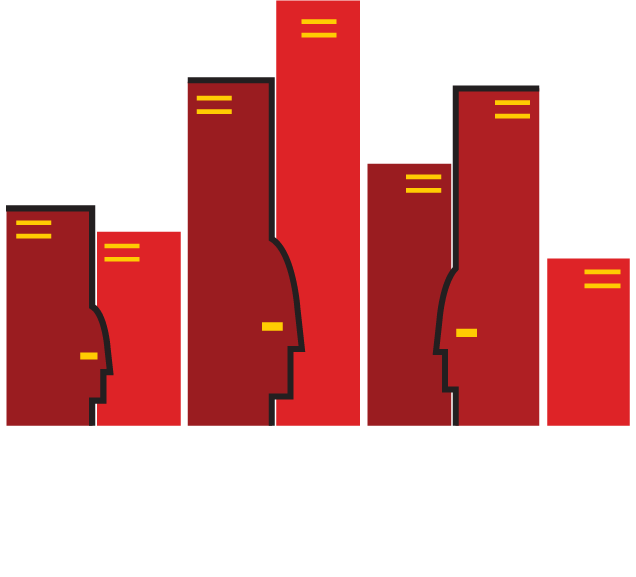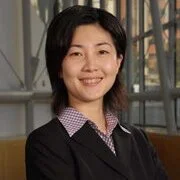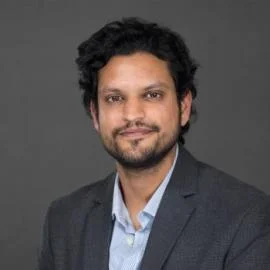Esther Stenberg, M.D.
Instantiating Integrative Health into Building Design: A Construct for Well-being in the Built Environment
DATE: April 29, 2021, 9am PST
LOCATION: Online Event with IN2WIBE (https://in2wibe.net)
https://tamu.zoom.us/j/91564919223?pwd=TFlVMWQyN091UHZOKzlydjhWQ0xMUT09
Internationally recognized design and health, mind-body science pioneer, Esther Sternberg M.D., is Research Director, Andrew Weil Center for Integrative Medicine, Founding Director, University of Arizona Institute on Place, Wellbeing & Performance. Formerly Senior Scientist and Section Chief, National Institutes of Health, and founding member, American Institute of Architects’ Design and Health Leadership Group and Research Consortium, she advised the U.S. Surgeon General, General Services Administration, Department of Defense, U.S. Green Building Council, Australian Green Building Council, International WELL Building Institute’s Task Force on COVID- 19, and the Vatican on design and health. Her Wellbuilt for Wellbeing – GSA research is informing healthy design standards. She received the Federal Government’s highest awards, was recognized by the National Library of Medicine as one of 339 women who “Changed the Face of Medicine,” received an Honorary Doctorate in Medicine, Trinity College, Dublin, and served as member and Chair of NLM’s Board of Regents. She received her M.D. from McGill University, Montreal, Canada, authored 235 scholarly articles, edited 10 technical books. Her best-selling Healing Spaces: The Science of Place and Well-being helped spark the design and health movement’s re-birth, 21st century style.
Prof. Nathaniel Fast
The Psychology of Algorithms at Work
DATE: April 27, 2021, 11am PST
LOCATION: Online Event
The use of artificial intelligence to track employee behavior and direct human resource decisions is spreading rapidly, but little is known about how employees will respond to these new practices. Workers have historically been averse to tracking and monitoring, suggesting that they may reject AI-based technologies that perform these functions. On the other hand, people frequently complain about bias in HR decisions about hiring, pay, and promotions, suggesting that replacing biased human decision-making with AI may be a welcomed change. The present talk examines these two practices – behavior tracking and decision-making – separately, showing that a different psychology emerges for each. In particular, employees are more likely to welcome behavior tracking when there is no human involvement, because it eliminates concern about negative judgment. However, in direct contrast, employees view HR-algorithms as unfair, based on the perception that AI cannot consider context and engage in holistic reasoning. The talk will examine the implications of these two distinct tendencies and conclude with a discussion of how to effectively and fairly introduce AI-based practices into the workplace.
Prof. Jin Wen
Data Driven Smart Buildings
DATE: February 23, 2021, 11am
LOCATION: online Event
In this seminar, an overview on the current status of data-driven smart building technologies, especially in the areas of Automated Fault Detection and Diagnosis (AFDD) and building-to-grid integration, will be presented. Malfunctioning control, operation, and building equipment, such as unstable control loop, biased sensor, and stuck outdoor air damper, are considered as the top cause for “deficient” building systems, which strongly affect a building’s performance. Meanwhile, extensive research has shown that buildings and building equipment can provide flexible electrical loads to improve grid resilience and overall efficiency and reduce peak demand. Yet significant challenges still exist to allow easy-to-use and cost-efficient AFDD and building-to-grid solutions to be adopted in the field. Data-driven methods, especially those that use machine learning and artificial intelligence strategies, have shown great promises to overcome many of the barricades. This seminar will discuss the needs, gaps, and promising data-driven methods in the areas of building system AFDD and building-to-grid integration. Issues with data-driven methods and future research directions will also be presented.
Prof. Larry D. Rosen
We are Facing an Attention Crisis: What is driving our distracted minds?
DATE: November 2, 2020, 4-5 PM
LOCATION: Online event
Dr. Rosen has been studying the impact of technology since the early 1980s and has seen our world become more complex and distracting due to three game changers: (1) the World Wide Web, (2) Smartphones, and (3) Social Media. He has studied more than 100,000 teens, millennials and members of Generation X in the United States and in 22 other countries. His latest book, “The Distracted Mind: Ancient Brains in a High-Tech World” (co-authored with Adam Gazzaley, MD, Ph.D.; MIT Press, 2016), won the PROSE Award for neuroscience in 2016. Dr. Rosen’s talk will include a look at research in his lab and others that will focus on “what” people are doing with their technology; “why” they do it from the viewpoint of psychology, neuroscience and marketing; and “how” we can help people enhance their relationships with this omnipresent technology focusing on well-being, attention and focus, sleep and communication.
Dr. Ruggiero Lovreglio
Virtual and Augmented Reality Application for Human Behavior in Disasters
DATE: February 3, 2020 2-3 PM
LOCATION: TBD
Understanding how people behave during disasters is fundamental to enhance the safety of building from the design stage to the maintenance stage. To date, new technologies can be used to facilitate the investigation of human behavior and training. This presentation will illustrate the Virtual Reality (VR) and Augmented Reality (AR) applications carried out by Dr Lovreglio et al. to investigate the evacuation behaviour in building fires and earthquakes and for safety training. The presentation will highlight the advantages and limitations of these technologies as well as possible future implementations of VR and AR.
Dr. L. Casey Chosewood
“Help! I Think My Job Is Killing Me”: New Solutions for the Risks of Modern Work
DATE: January 29, 2020, 4 PM
LOCATION: RRI 101
Despite improvements in occupational safety and health over the last several decades, today’s workers still report for duty to jobs with unacceptably high levels of work-related injury, illness, disability and death. To most effectively protect workers, lengthen productive life, reduce illness and disability, and sustain enterprises, we must think beyond traditional prevention strategies and technologies currently used in occupational safety, in the built environment, and in workplace health programs. The Total Worker Health® approach meets these challenges with novel strategies. Total Worker Health seeks to advance holistic worker well-being through policies, programs, and practices that integrate protection from work-related safety and health hazards with promotion of injury and illness prevention. This lecture will explore this approach and give participants critical guidance for the risks and rewards that lie ahead. So, is your job going to be the death of you? Join us to get real answers to real challenges.
Prof. Rishee Jain
Urban Informatics: Harnessing data to understand dynamics between people, buildings and energy systems in cities
dATE: December 5 2019, 3-4 PM
lOCATION: KAP 209
The world is rapidly urbanizing. Scientists, engineers and policy-makers are now facing the daunting task of providing billions of urban citizens with such core necessities as clean energy, air and water. Doing so will undoubtedly require re-thinking the complex relationships, dynamics and interactions between people, buildings and energy systems in cities. Fortunately, the emergence of new data streams from in-situ sensors (e.g. smart meters) and remote sensors (e.g. mobile phones) as well enhanced access to existing data (e.g. municipal records) enables us to study the complex socio-technical dynamics between people and their urban infrastructure on spatial and time scales previously not possible. This talk will encompass work done by the Stanford Urban Informatics Lab that aims to utilize such data streams to understand the complex interactions between people, buildings and energy systems across three key scales (building, community, urban). In doing so, we aim to develop holistic solutions that can enhance the sustainability and energy efficiency of our cities.
Prof. Mikhail Chester
Infrastructure and the Anthropocene
dATE: october 24 2019, 4-5pm
LOCATION: KAP 209
At the dawn of the twenty-first century, there are signs that several critical social, technological, and environmental variables are changing in ways that will have major effects on how we design and manage infrastructure. These variables include climate nonstationary, uncertainty in financing, increasing ideological polarization in politics, and acceleration of technologies, as well as their interactions. These variables are positioned to increase the uncertainty and complexity of the systems that infrastructure must operate in and support and are likely to require new competencies of engineers and infrastructure managers. In this talk I will attempt to characterize the emerging uncertainty and complexity that is becoming the new normal for infrastructure. In doing so I will describe the changing relationship between infrastructure and the environment, how infrastructure implementation and operation have become wicked and complex problems, and how the accelerating integration of cyber technologies is likely to fundamentally shift the capabilities and vulnerabilities of infrastructure. I will then discuss how our approaches to infrastructure need to shift from a focus on the complicated problems that we tackled in the past century, to a paradigm that acknowledges the growing complexity in the Anthropocene and our inability to manage it. I will argue that agility and flexibility will need to be core design principles (instead of rigidity) and education will need to be transitioned towards training infrastructure managers for goals of guiding complex systems
Tianzhen Hong
Modeling Urban Buildings for Improvement of Efficiency and Resiliency
dATE: November 7 2019, 4-5 PM
lOCATION: MCB 102
U.S. Cities consume 70% of primary energy, produces 80% of GDP, and are facing challenges of aging infrastructure, impact of climate change and extreme weather events.Urban systems are interconnected systems of buildings, micro climate, transportation, power and water supply. This talk will introduce urban systems research at the Building Technology and Urban Systems Division, focusing on modeling and simulation of urban buildings to improve their energy efficiency and resiliency, leveraging emerging opportunities in big data, artificial intelligence, and exascale computing.











